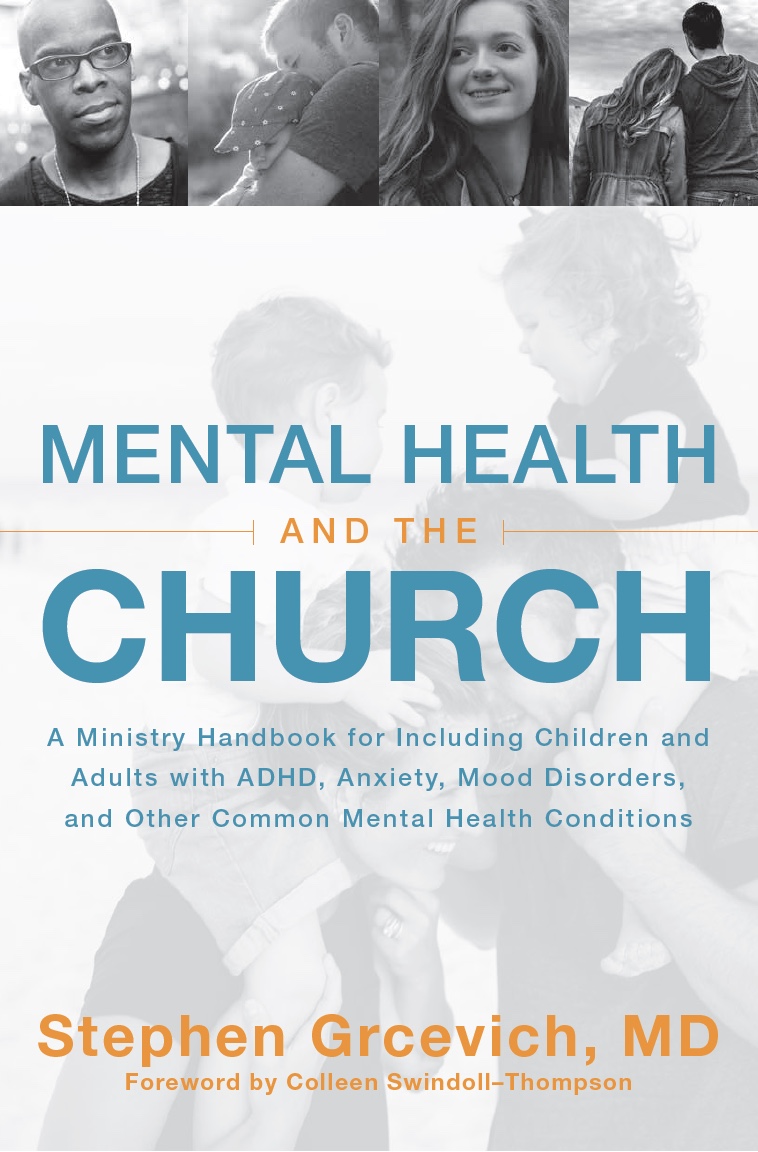 In Wednesday’s post, we discussed spiritual challenges that kids with ADHD encounter, related to core deficits in executive functioning. Today, we’re going to take another angle on the topic of spiritual challenges to look at the obstacles to growth that result (in some, but certainly not all cases) from the families of kids with ADHD.
In Wednesday’s post, we discussed spiritual challenges that kids with ADHD encounter, related to core deficits in executive functioning. Today, we’re going to take another angle on the topic of spiritual challenges to look at the obstacles to growth that result (in some, but certainly not all cases) from the families of kids with ADHD.
The first issue we need to consider is that kids with ADHD often have parents with ADHD. If a parent has ADHD, the odds that any one of their children will have ADHD is around 50%. Around 75% of cases of ADHD in kids can be attributed to genetic influences, but that doesn’t necessarily mean that environmental influences aren’t important, because some of that 75% includes the interaction of environment and genetics. Other cases are caused by developmental or environmental insults…premature birth, exposure in-utero to alcohol or tobacco, lead exposure, early physical or sexual abuse, and possibly, excessive exposure to video games or media.
Dr. Steve Faraone is one of the top researchers and statisticians in the child mental health field. He co-authored a editorial in last month’s JAACAP reviewing studies on the genetics of ADHD. I included this excerpt because the understandings we’re reaching about ADHD are likely to be what we’ll find with autism and other “hidden disabilities”…
“While twin studies report that ADHD is influenced 60% to 90% by genes, at best, only 5% of that influence can be traced to specific candidate genes. In some ways, this discovery was also an important one because it motivates us to think of genes in a different light. Rather than think of genes as disease genes, which they almost certainly are not, it is perhaps better to embrace the concept of susceptibility genes, i.e., that some DNA variants increase the risk for the brain variations underlying a disorder but are not necessary and specific causes of the disorder. In this way, each DNA risk variant can be seen as being responsible for influencing a trait, expressed as a variation in brain functioning, and the combination of these traits may be what puts one child at risk for a disorder, and yet a different combination may be protective.”
Sorry about digressing, but here’s the bottom line: We’re often relying upon parents who have difficulty setting priorities, following through on tasks and maintaining focus to be the primary faith trainers of kids with a condition that already poses obstacles to their spiritual growth.
Many of these parents were the kids who were turned off by church trying to sit still as a 12 year old in a straight-backed pew through a boring sermon while wearing uncomfortable clothes. One can make an argument that our “seeker-sensitive” churches represent an attempt to create an environment welcoming to adults with ADHD through offering relevant messages with one main point, services incorporating rich media, contemporary music, stadium seating and holders for coffee cups or other caffeinated beverages. (I told my last pastor that the least I could do after he spent 20 hours on the sermon was to show up with my Diet Mountain Dew Code Red prepared to listen.)
To illustrate the challenge at hand for the parent with ADHD raising the child with ADHD, let’s look at a summary slide below examining the executive functions we discussed in recent posts and consider the impact on spiritual growth in adults with ADHD:
I’m a big fan of the family ministry philosophy espoused by the guys at Orange Leaders, especially for families of kids with disabilities. That’s a teaching series for later in the fall or early in the winter. Here’s where there’s a parallel between what a children’s or family ministry pastor does and what I do in my day job…in many instances, we won’t be able to help the child until we first help the parents. Having a church community that can come around these families becomes a really important piece of the solution for kids with ADHD.
One more thought about how this plays out…last Fall, our team had the pleasure of doing some training at Northland Church in Orlando, where Debbie Blahnik is doing great things with the Children’s Ministry and Laura Lee Wright heads up the Access Ministry for persons with all types of disabilities. Debbie asked us to do a presentation on serving families of kids who are “irregular attenders,” because her team had theorized that their kids with hidden disabilities like ADHD have some relationship with the church, but the relationship is inconsistent. I had one of those moments when the light bulb went off over my head and our ministry team gets really scared. Most kids can’t get up and drive themselves to church! We can talk about ministry environments and curriculum all we want, but we’re not going to be able to help kids with ADHD to grow spiritually unless we can connect with and build influence with their parents.
***********************************************************************************************************
 Key Ministry has assembled resources to help churches more effectively minister to children and adults with ADHD, anxiety disorders, Asperger’s Disorder, Bipolar Disorder, depression and trauma. Please share our resources with any pastors, church staff, volunteers or families looking to learn more about the influence these conditions can exert upon spiritual development in kids, and what churches can do to help!
Key Ministry has assembled resources to help churches more effectively minister to children and adults with ADHD, anxiety disorders, Asperger’s Disorder, Bipolar Disorder, depression and trauma. Please share our resources with any pastors, church staff, volunteers or families looking to learn more about the influence these conditions can exert upon spiritual development in kids, and what churches can do to help!





Phenomenal information, Steve…this will be so helpful for ministry professionals and volunteers as they work with families!
LikeLike
Steve,
I haven’t had a chance to comment yet, but I wanted to let you know that I am really enjoying, and more importantly learning, from this series. Keep up the great work!
Wayne
Dad in the Middle (http://waynestocks.com)
Kidmin1124 (http://Kidmin1124.com)
LikeLike
Wayne,
Thanks for your comments. Let me know if our crew can do anything to help your church with the kids and families you’re serving in Columbus.
Steve
LikeLike
Outstanding, Steve!
LikeLike
There is obviously a lot to know about this. I think you made some good points in Features also.
Keep working ,great job!
LikeLike
Pingback: The Children’s Ministry Blog Patrol (September 2010) | Dad in the Middle